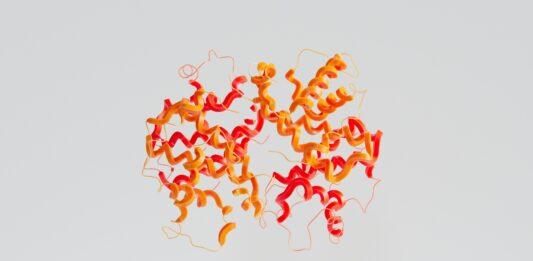RNA technology has proved its worth recently in development of mRNA vaccines BNT162b2 (of Pfizer/BioNTech) and mRNA-1273 (of Moderna) against COVID-19. Based on degrading the coding RNA in animal model, French scientists have reported a potent strategy and proof of concept for the treatment for Charcot-Marie-Tooth disease, the most common hereditary neurological disease that causes progressive paralysis of the legs and hands.
In 1990, researchers demonstrated for the first time that direct injection of mRNA into mouse muscle led to expression of encoded protein in the muscle cells. This opened the possibility of development of gene-based vaccines and therapeutics.
The unpresented situation presented by the COVID-19 pandemic, led to successful development and emergency use authorisation (EUA) of mRNA-based vaccines BNT162b2 (of Pfizer/BioNTech) and mRNA-1273 (of Moderna) against COVID-19. These two vaccines based on RNA technology have played significant role in protecting people against severe symptoms of COVID-19.
Success of RNA technology based COVID-19 vaccines was considered a milestone in science and medicine as it proved worthiness of a high potential medical technology that scientific community and pharmaceutical industry has been pursuing for almost three decades. It gave a much-needed thrust to exploration of RNA technology-based therapeutics.
Charcot-Marie Tooth disease is the most common hereditary neurological disease. The peripheral nerves are affected which leads to progressive paralysis of the legs and hands. The disease is caused due to the overexpression of a specific protein called PMP22. There is no treatment against this disease so far.
The scientists at the CNRS, INSERM, the AP-HP and the Paris-Saclay and Paris universities in France have recently reported development of a therapy based on degrading and reducing the coding RNA for the PMP22 protein. For this, they used other siRNA (small interfering RNA) molecule that interfered with the RNA coding for PMP22 protein.
The researchers found that injection of siRNA (small interfering RNA) in mice model of the disease reduced the level of PMP22 protein to normal and restored locomotion and strength of the muscle. Histological studies revealed regeneration and restoration of function of myelin sheaths. The positive results lasted for three weeks, and renewed injection of siRNA led to full functional recovery.
This study is significant for it suggests a potent strategy for treatment of hereditary peripheral neuropathies. It provides the proof of concept for a new precision medicine based on application of RNA technology to correct excessive gene expression through use of interfering RNA.
However, the actual treatment of the patient is still a long way till successive phases of clinical trials provide satisfactory safety and effectiveness results to regulators.
***
Sources:
- Prasad U., 2020. COVID-19 mRNA Vaccine: A Milestone in Science and a Game Changer in Medicine. Scientific European. Posted 29 December 2020. Avaialble at https://www.scientificeuropean.co.uk/covid-19/covid-19-mrna-vaccine-a-milestone-in-science-and-a-game-changer-in-medicine/
- Press Release – Inserm Press Room – Charcot-Marie Tooth disease: A 100% French RNA-based therapeutic innovation. Link: https://presse.inserm.fr/en/charcot-marie-tooth-disease-a-100-french-rna-based-therapeutic-innovation/42356/
- Boutary, S., Caillaud, M., El Madani, M. et al. Squalenoyl siRNA PMP22 nanoparticles are effective in treating mouse models of Charcot-Marie-Tooth disease type 1 A. Commun Biol 4, 317 (2021). https://doi.org/10.1038/s42003-021-01839-2
***



































